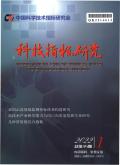Policy analysis of community activity restrictions on carbon monoxide concentrations based on regional core activities
引用次数: 0
Abstract
Lockdown is one of the policies taken by many countries to prevent the spread of covid 19. In contrast to other countries, Indonesia does not adopt a lockdown policy but prefers Restrictions on Community Activities (PKM). Restrictions on community activities such as referring to lockdown but not in full, the existing policies include four restrictions: cessation of the implementation of activities in schools and educational institutions, restrictions on activities at work, restrictions on religious activities, and restrictions in public places. This paper tries to investigate the effect of restrictions on Community Activities on air quality, especially on the concentration of Carbon Monoxide in one city and partially based on core activity. This study measures the column concentration of total Carbon Monoxide (CO) from the Tropospheric Monitoring Instrument (TROPOMI) on the Sentinel-5 Precursor satellite. In this study, we analyze the average CO concentration of Semarang City before and during COVID-19 from January 1, 2019, to August 30, 2021. The results show that the policy of restrictions on Community Activities can reduce the value of CO concentration to remain stable at < 30â mol/m2â in core activities with the dominance of local internal transportation within the city (education, settlements, trading center, and industry), while activities with the dominance of transportation outside the city (transportation nodes) produce different things with an average concentration of > 32â mol/m2, but with a downward trend. © 2023 Author(s).基于区域核心活动的社区活动一氧化碳浓度限制政策分析
封锁是许多国家为防止新冠病毒传播而采取的政策之一。与其他国家不同,印度尼西亚没有采取封锁政策,而是更倾向于“社区活动限制”(PKM)。对社区活动的限制,如指“封锁但不全面”,现有政策包括停止在学校和教育机构开展活动、限制工作场所活动、限制宗教活动、限制公共场所活动等四项限制。本文试图调查限制社区活动对空气质量的影响,特别是对一个城市一氧化碳浓度的影响,并部分基于核心活动。本研究测量了Sentinel-5前驱卫星上对流层监测仪器(TROPOMI)的总一氧化碳(CO)柱浓度。在本研究中,我们分析了2019年1月1日至2021年8月30日期间三宝垄市在COVID-19之前和期间的平均CO浓度。结果表明:社区活动限制政策可使以城市内部交通为主的核心活动(教育、住区、贸易中心和工业)CO浓度稳定在< 30 mol/m2,而以城市外部交通为主的活动(交通节点)产生的CO浓度不同,平均浓度> 32 mol/m2,但呈下降趋势;©2023作者。
本文章由计算机程序翻译,如有差异,请以英文原文为准。
求助全文
约1分钟内获得全文
求助全文

 求助内容:
求助内容: 应助结果提醒方式:
应助结果提醒方式:


